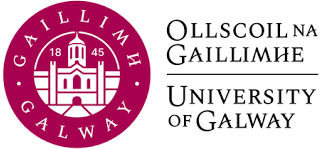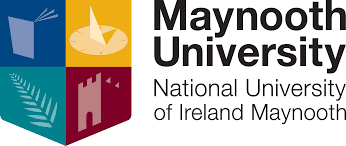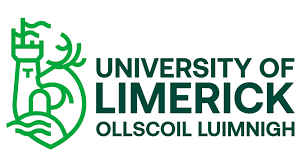Parcours Franco-Britannique et Irlandais
Un double diplôme délivré par Nantes Université et les universités britanniques et irlandaises
Mis en œuvre conjointement par les universités de Nantes, Bristol-UWE, Cardiff, Galway, Griffith, Limerick, Nottingham et Maynooth, le Parcours Franco-Britannique et Irlandais est un parcours d'excellence offrant aux étudiants nantais la possibilité d'acquérir, en plus de leur formation en droit français, une connaissance approfondie de la langue et de la culture juridique britannique et irlandaise dans le cadre d'un programme d'études européennes.
Déroulement du cursus
Les participants au parcours bénéficient, lors de la préparation de leur Licence de droit, d'un enseignement linguistique renforcé et de cours de droit en anglais.
La quatrième année du cursus se déroule au Royaume-Uni ou en Irlande où les étudiants valident un LLM in Laws dans l'une de nos universités partenaires. Par équivalence dans le cadre de nos accords de double-diplôme, ils valident également leur Master 1 en droit. Après cette année à l'étranger, les étudiants reviennent à Nantes en Master 2.
La quatrième année du cursus se déroule au Royaume-Uni ou en Irlande où les étudiants valident un LLM in Laws dans l'une de nos universités partenaires. Par équivalence dans le cadre de nos accords de double-diplôme, ils valident également leur Master 1 en droit. Après cette année à l'étranger, les étudiants reviennent à Nantes en Master 2.
Cadre pédagogique
Les cours sont assurés par des enseignants-chercheurs bilingues, des professeurs d'anglais, et des intervenants anglo-américains (enseignants et praticiens du droit) spécialement invités. Un large choix d'ouvrages juridiques en langue anglaise, régulièrement actualisé, est disponible à la bibliothèque universitaire.
Enseignements en Licence
La maquette du parcours Franco-Britannique et Irlandais reprend les enseignements fondamentaux de la licence de droit classique.
Vous trouverez le descriptif des cours supplémentaires enseignés dans le cadre du parcours via ce lien.
Vous trouverez le descriptif des cours supplémentaires enseignés dans le cadre du parcours via ce lien.
Master 1
Le double-diplôme M1/LLM peut s'effectuer pendant un an dans l'une des universités partenaires ci-dessous :
* Royaume-Uni :
- Cardiff University
- University of Nottingham
- University of the West of England, Bristol
* Irlande :
- Griffith College
- National University of Ireland, Galway
- Maynooth University
- University of Limerick
Présentation 2023/2024 : Vous trouverez le détail de ces universités et des conditions d'admission (les tarifs indiqués dans ce document sont susceptibles d'évoluer).
Attention : les mobilités vers le Royaume-Uni pour une durée supérieure à 6 mois sont désormais soumises au Visa étudiant. Pour plus d'informations, merci de consulter ce site.
* Royaume-Uni :
- Cardiff University

- University of Nottingham

- University of the West of England, Bristol

* Irlande :
- Griffith College

- National University of Ireland, Galway

- Maynooth University

- University of Limerick

Présentation 2023/2024 : Vous trouverez le détail de ces universités et des conditions d'admission (les tarifs indiqués dans ce document sont susceptibles d'évoluer).
Attention : les mobilités vers le Royaume-Uni pour une durée supérieure à 6 mois sont désormais soumises au Visa étudiant. Pour plus d'informations, merci de consulter ce site.
Admission en L1
Les dossiers de candidature sont déposés sur parcoursup de janvier à avril pour une admission à la rentrée suivante. Ils sont ensuite étudiés par la commission d'examen des vœux, composée d'enseignants du parcours, qui établit un classement au regard d'un certain nombre de critères : les notes de première et de terminale en français/philosophie, en histoire-géographie et en anglais, les éléments d'appréciation figurant dans la fiche avenir, l'intérêt du candidat pour le droit et la culture britannique ou irlandaise.
Admission en L2 et L3
Les procédures de candidature pour rejoindre la L2 ou la L3 de ce parcours seront ouvertes du 28 avril au 22 juin 2025. Il vous faudra pour cela déposer un dossier sur l'application Gsurf (création de compte nécessaire pour les étudiants hors Nantes Université) : https://surf.univ-nantes.fr/login.jsf
- Les candidats ayant déjà validé une L1 ou une L2 de Droit devront sélectionner la mention suivante : "Candidature à une formation sélective".
- Les candidats n'ayant pas validé une L1 ou une L2 de Droit devront également déposer un dossier de "Validation des études, expériences professionnelles et acquis personnels - VAPP".
Les dossiers seront étudiés par les responsables de la formation à l'issue de la période de dépôt des dossiers de candidature.
Perspectives professionnelles
À l'heure où les processus d'européanisation et de mondialisation du droit rendent plus que jamais nécessaire l'ouverture intellectuelle aux cultures étrangères, les étudiants sauront tirer profit d'un cursus les familiarisant avec la Common Law et la comparaison des droits, s'ils se destinent à une activité juridique transnationale (avocat d'affaire, fonctionnaire international ou européen, salarié d'une ONG, chercheur universitaire, activiste sans frontière...).
Équipe pédagogique
Responsables : Renan LE MESTRE
Enseignants : Renaud COLSON, Araceli TURMO, Odile DELFOUR SAMAMA, Renan LE MESTRE et Derek WILSON
Enseignants : Renaud COLSON, Araceli TURMO, Odile DELFOUR SAMAMA, Renan LE MESTRE et Derek WILSON
Témoignages
Rachel Porteboeuf, major de sa promotion du LLM "International Law" à UWE Bristol en 2023-2024, a reçu le prix Robertson-Horsington (promotion The Four Courts)
Pierre Le Ninivin, juriste financier à la Société générale, a suivi le LLM "European legal studies" à Cardiff en 2014-2015 (promotion Tywysogaeth Cymru)
Conditions d'accès, modalités d'inscription et pré-requis
En L1 : avoir été sélectionné par la commission pédagogique après formulation du voeu spécifique "Licence mention Droit Parcours Franco-Britannique et Irlandais" sur Parcoursup (70 places maximum).
En L2 et L3 : lorsque l'étudiant a validé son année, il peut intégrer le niveau supérieur.
En M1 / LLM : L'admission à poursuivre le LLM est conditionnée à l'accord des universités partenaires. Cet accord est notamment subordonné à l'obtention d'une certification linguistique et à l'obtention d'une note minimum en L3 (voir exigences des universités partenaires). L'étudiant doit avoir également été sélectionné dans un des Masters 1 à la Faculté de Droit et Sciences politiques de Nantes.
En L2 et L3 : lorsque l'étudiant a validé son année, il peut intégrer le niveau supérieur.
En M1 / LLM : L'admission à poursuivre le LLM est conditionnée à l'accord des universités partenaires. Cet accord est notamment subordonné à l'obtention d'une certification linguistique et à l'obtention d'une note minimum en L3 (voir exigences des universités partenaires). L'étudiant doit avoir également été sélectionné dans un des Masters 1 à la Faculté de Droit et Sciences politiques de Nantes.
Validations
Licence 3 : tout étudiant du Parcours Franco-Britannique et Irlandais ayant validé trois années de Licence de Droit se verra délivré un supplément au diplôme spécifique au Parcours Franco-Britannique et Irlandais.
Master 1 : l'obtention du Master 1 de la Faculté de Droit et des Sciences politiques de Nantes dans le cadre du Parcours Franco-Britannique et Irlandais est subordonnée à la validation des enseignements requis dans le cadre du LLM proposé par les partenaires britanniques et irlandais et éventuellement - selon le RCC du Master 1 d'inscription - à la rédaction d'un mémoire en français ainsi qu'à à sa soutenance devant un jury composé de deux enseignants-chercheurs nantais.
Master 1 : l'obtention du Master 1 de la Faculté de Droit et des Sciences politiques de Nantes dans le cadre du Parcours Franco-Britannique et Irlandais est subordonnée à la validation des enseignements requis dans le cadre du LLM proposé par les partenaires britanniques et irlandais et éventuellement - selon le RCC du Master 1 d'inscription - à la rédaction d'un mémoire en français ainsi qu'à à sa soutenance devant un jury composé de deux enseignants-chercheurs nantais.
Contact
Scolarité - Bureau des Relations Internationales (bureau 105)
Oriane DOLLO
parcours.fbi@univ-nantes.fr
+ 33(0) 2 40 14 16 77
Oriane DOLLO
parcours.fbi@univ-nantes.fr
+ 33(0) 2 40 14 16 77
Association du Parcours Franco-Britannique et Irlandais
L'association "FFB" a pour objectif de faire rayonner le Parcours Franco-Britannique et Irlandais mais aussi de forger un esprit de cohésion entre les étudiants du parcours. Par ailleurs, dans une logique de professionnalisation, l'association tend à entretenir des liens privilégiés avec des acteurs professionnels au plan local, national et international. Site internet de l'association du Parcours Franco-Britannique et Irlandais :
association-ffb.fr et leur page sur le site de la Faculté
association-ffb.fr et leur page sur le site de la Faculté
En téléchargement
Mis à jour le 15 mai 2025.



